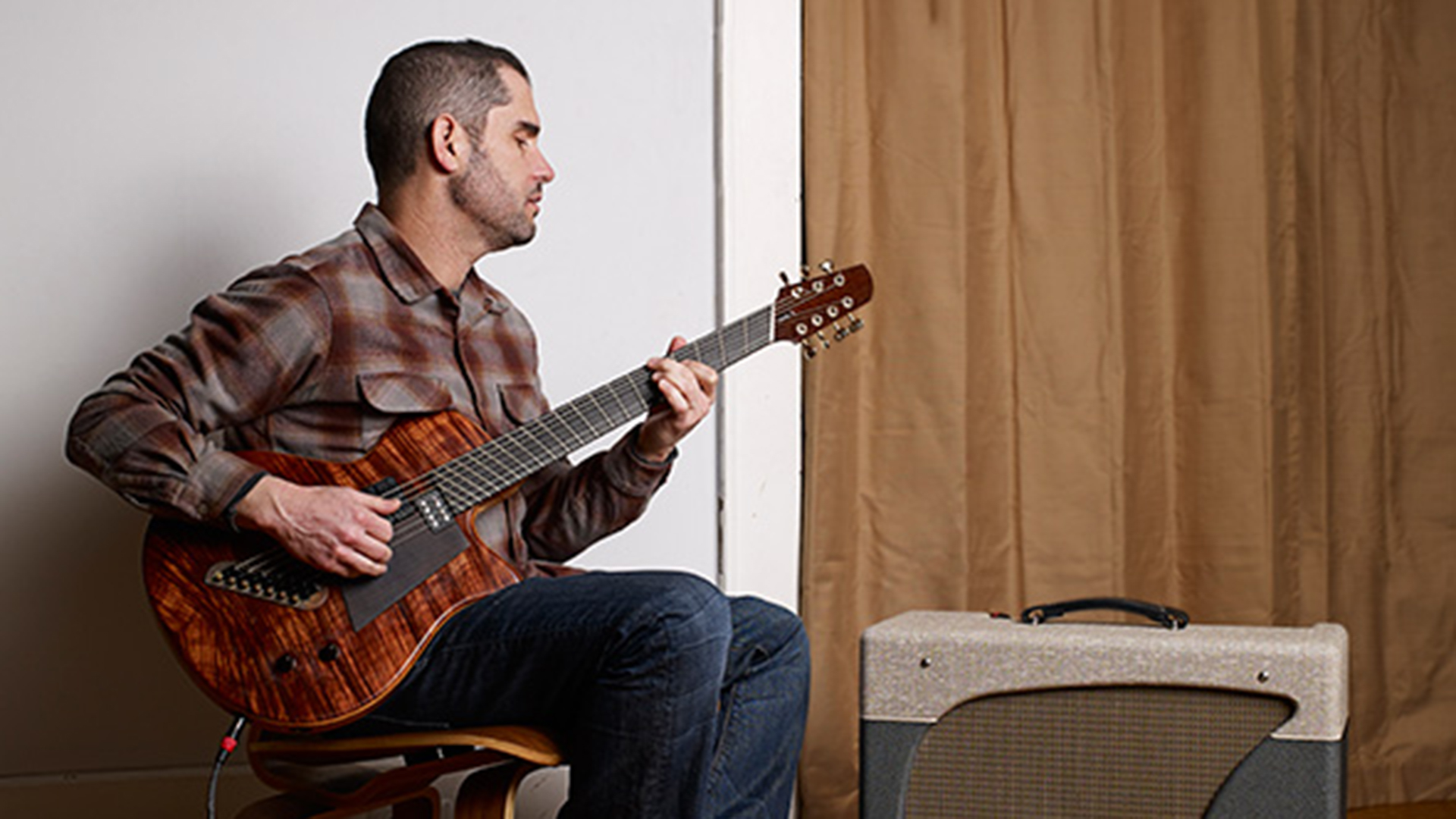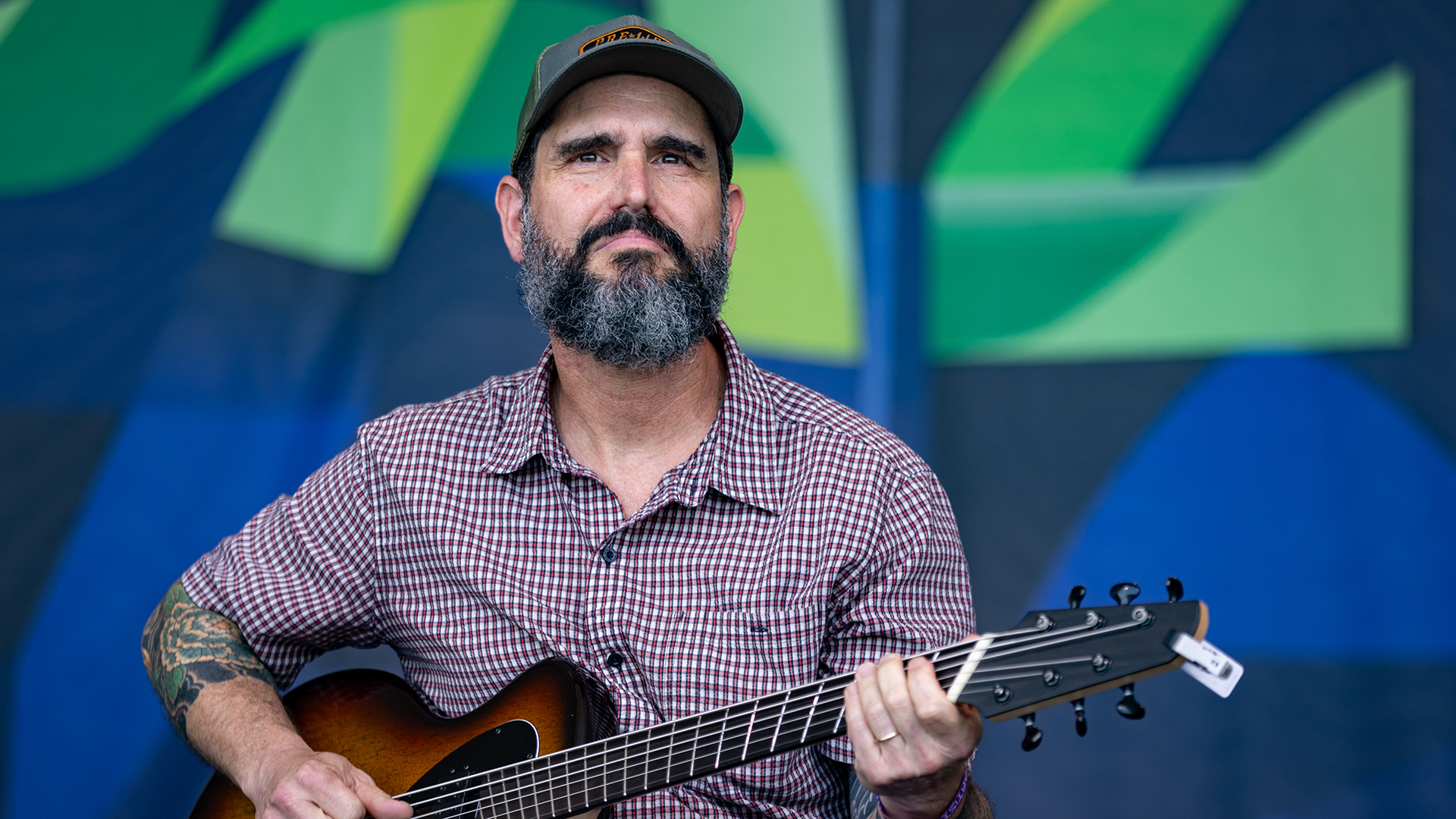Charlie Hunter on Discovering His Rhythm and His New Trio Album, ‘Let the Bells Ring On’

To describe Charlie Hunter as a virtuoso guitarist is to ignore what makes him such an inspiring musician.
Sure, he showcases an awesome technical facility on his seven-string guitar/bass hybrid – simultaneously performing walking lines on the instrument’s bass strings while picking out chords and melody lines on its upper treble notes – but what makes Hunter’s playing truly distinctive are the deep, contrapuntal grooves he coaxes out of his unorthodox instrument.
If you’ve never actually heard Hunter play, your first reaction might be to assume it's a novelty or gimmick – his playing barely distinguishable from the endless stream of uber-impressive shredders, slappers and tappers scattered across YouTube.
But in fact, there’s a reason Hunter has sustained a decades long career in music while 99 percent of these sort of guitarists never rise past online fame.
“I think you should know a lot about guitar and how to physically play the instrument,” Hunter says. “But if you don’t have the deeper musical message, it’s going to ultimately be pretty meaningless.“
That “deeper musical message” might be hard to quantity, but it speaks to an ability to connect with people on a visceral human level. Instead of utilizing the guitar as a mainly a melodic instrument to engage an audience, Hunter takes a different approach.
“The magic in my instrument is not going to happen with any linear concept," he says. "Whatever magic there is to be achieved will be found in the rhythmic counterpoint between the bass side and the treble side of the instrument.”
Get The Pick Newsletter
All the latest guitar news, interviews, lessons, reviews, deals and more, direct to your inbox!
Hunter brings a drummer’s mentality to his playing, concerning himself with rhythm first and employing melody and harmony more as accompaniment.
“It’s important for me to play enough drums to really understand how this stuff is really supposed to feel when I’m doing it. For me, the past 10 or 15 years have really just been about how well I can execute the rhythmic feel. That’s what I really love doing and what I think is the most fun. Unfortunately, it’s not very flashy!”
He’s quick to concede, however, that as a kid cutting his teeth in Berkeley, California’s burgeoning jazz/funk scene, his playing wasn’t always so centered on finding the pocket.
“When I first started out, at the point in the ’90s people liked to hear all more flashy, jazzier kind of stuff. So I had to learn that stuff, but of course I was at the age when I really wanted to.
“And as I got older I asked, ‘Where’s the instrument really coming from?’ And it’s really coming from more of a folk thing, like country blues and the American guitar vernacular.”

Growing up, some of the first music Hunter heard was the finger-style country blues of guitarists like Mississippi John Hurt and Blind Blake. Hunter’s mom – a guitarist and luthier – was a part of the Greenwich Village folk scene and actually knew some of these Piedmont bluesmen, including Reverend Gary Davis.
“That was the music that was on around my house, and I was just like, ‘Oh, I’m so embarrassed. Why even listen to that music?’ But as I got older, I realized, ‘Wow, this is the real stuff here!’”
On his new album, Let the Bells Ring On, released in June, Hunter tapped trombonist Curtis Fowlkes and drummer Bobby Previte—two acclaimed jazz musicians who are forward-looking yet deeply tied to the tradition his mom first exposed him to.
In describing what he was looking for in musicians to collaborate with on the project, Hunter praises Fowlkes and Previte, saying, “The kind of music I like is the music those guys grew up hearing. If you want to play that music the way it’s supposed to feel, you should hire guys who grew up with it.”
And while the songs on this new record feature plenty of sophisticated improvisation, the music has an understated quality, leaving plenty of room for each instrumentalist to inhabit the sonic space created within the groove.
Hunter sums up the approach well: “To be totally honest, it’s all the blues to me. It’s all the blues and a nice beat. I think maybe I’d be considered a jazz musician 40 years ago, but definitely not today. What can I say, I just really like Horace Silver. I don’t need much more than that.“
Ethan Varian is a freelance writer and guitarist based in San Francisco. He has performed with a number of rock, blues, jazz and bluegrass groups in the Bay Area and in Colorado. Follow him on Twitter.
"They said, 'We don't have a direction yet, but you got the gig!' I said, 'Well, let me think about it'": Yngwie Malmsteen on why he turned down UFO
“I loved working with David Gilmour… but that was an uneasy collaboration”: Pete Townshend admits he’s not a natural collaborator – even with bandmates and fellow guitar heroes








![[from left] George Harrison with his Gretsch Country Gentleman, Norman Harris of Norman's Rare Guitars holds a gold-top Les Paul, John Fogerty with his legendary 1969 Rickenbacker](https://cdn.mos.cms.futurecdn.net/TuH3nuhn9etqjdn5sy4ntW.jpg)
